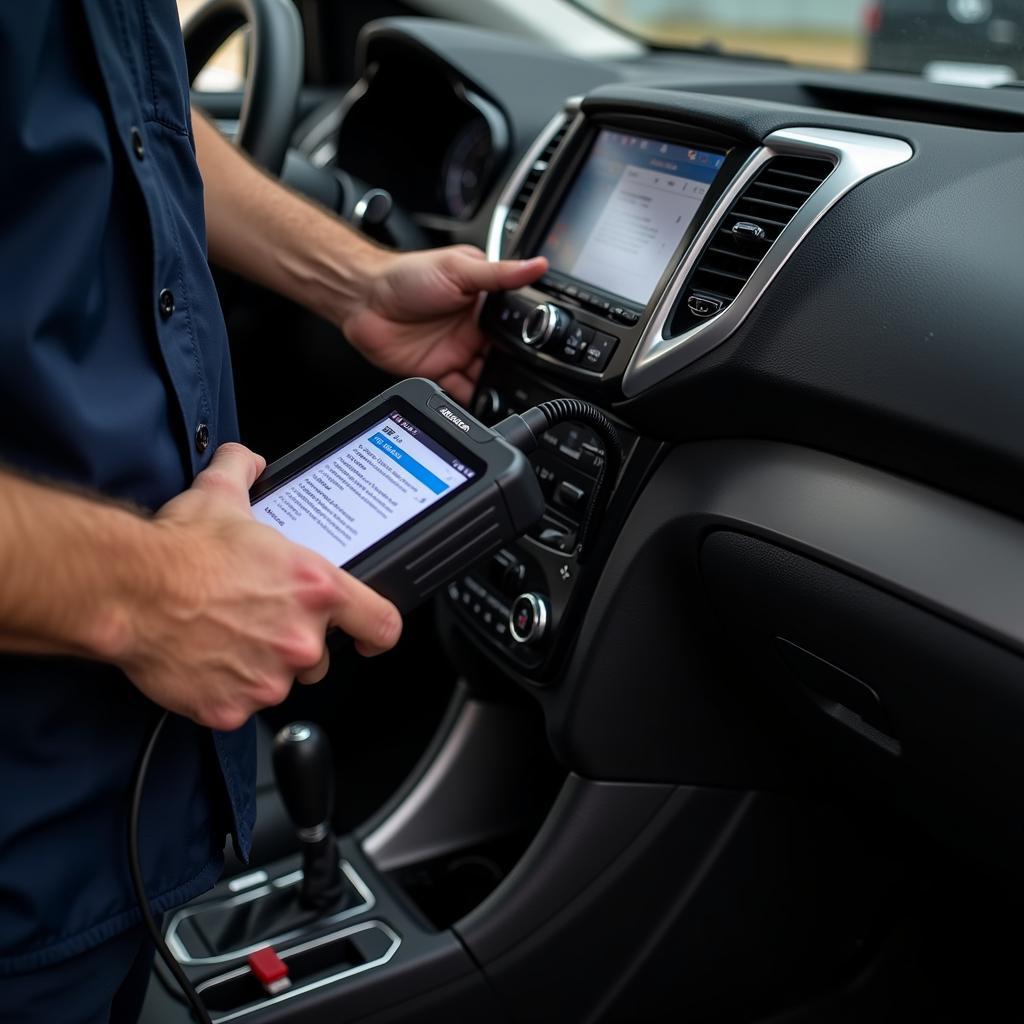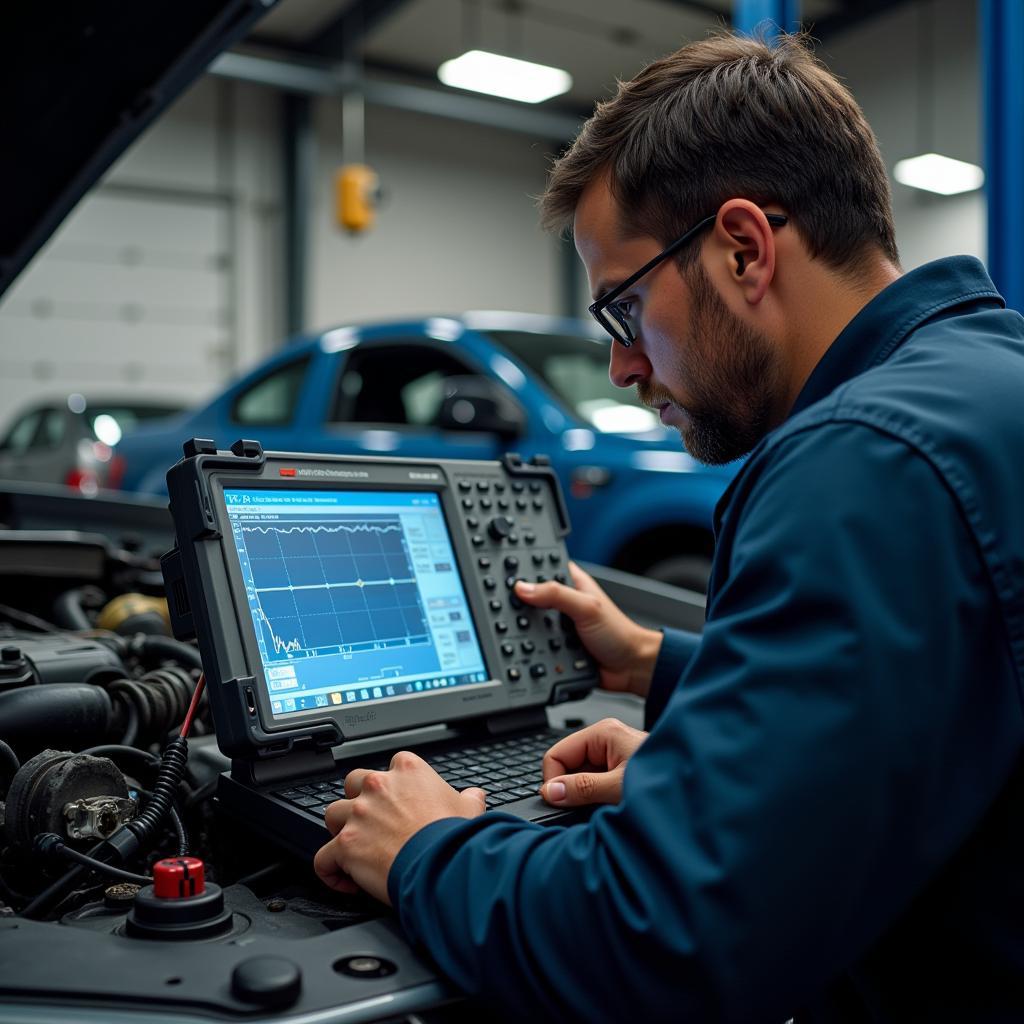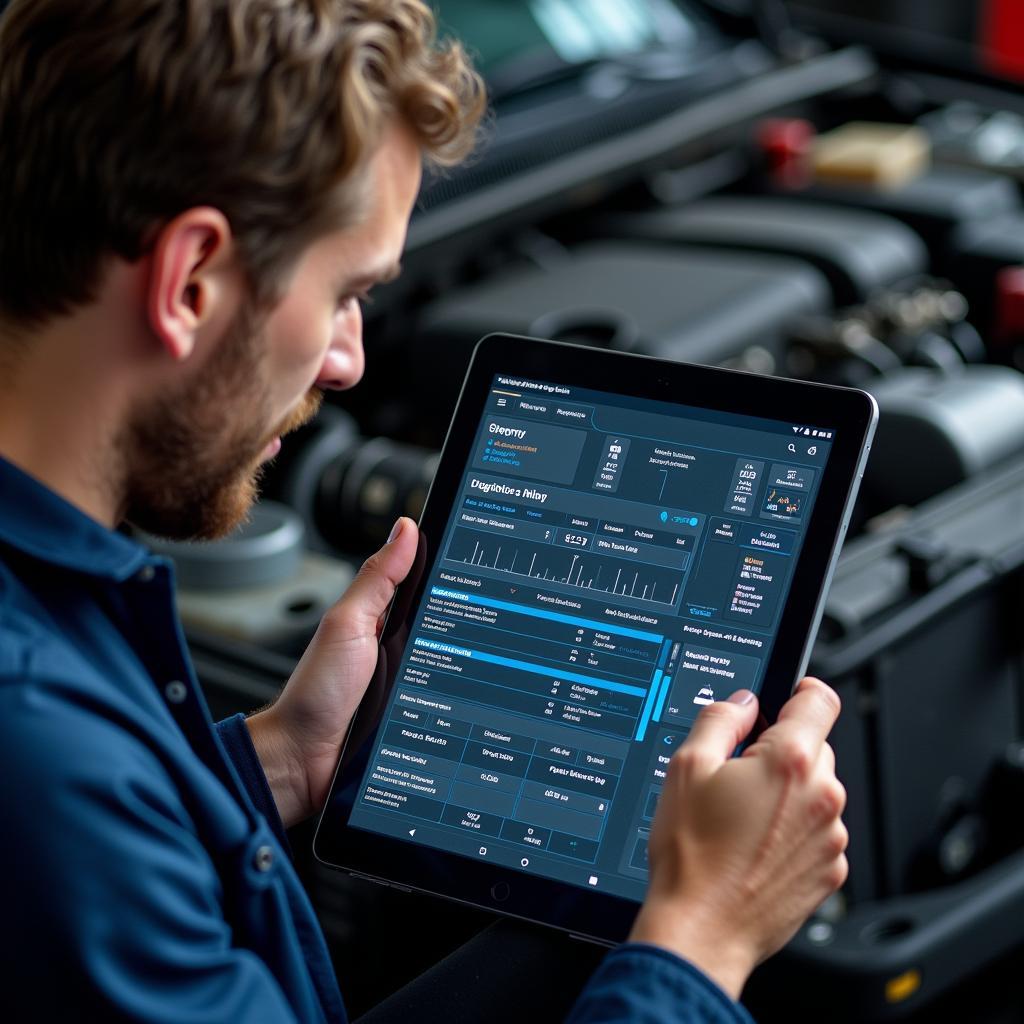Car And Truck Diagnostic Equipment has become essential for modern vehicle maintenance and repair. As vehicles become increasingly complex, with intricate electronic systems and computer-controlled components, the need for sophisticated diagnostic tools has grown exponentially. Whether you’re a professional mechanic or a DIY enthusiast, having the right car and truck diagnostic equipment can save you time, money, and frustration.
 Mechanic Connecting Diagnostic Scanner to Car
Mechanic Connecting Diagnostic Scanner to Car
Types of Car and Truck Diagnostic Equipment
The market offers a wide range of diagnostic equipment, each catering to different needs and budgets. Here’s a breakdown of some common types:
1. OBD-II Scanners: These handheld devices are the most basic type of car diagnostic equipment. They connect to your vehicle’s OBD-II port and can read and clear basic diagnostic trouble codes (DTCs). OBD-II scanners are affordable and suitable for DIYers looking to understand and address simple engine-related issues.
2. Code Readers: A step up from OBD-II scanners, code readers provide more detailed information about DTCs, including code definitions and possible causes. Some code readers may also offer live data streaming, allowing you to monitor engine parameters in real-time.
3. Automotive Oscilloscopes: For advanced diagnostics, automotive oscilloscopes are indispensable. They measure and display electrical signals within a vehicle’s systems, enabling technicians to diagnose complex problems related to sensors, actuators, and wiring harnesses.
4. Digital Multimeters: A must-have for any mechanic, digital multimeters are versatile tools used to measure voltage, current, resistance, and continuity. They are essential for testing electrical components and circuits in vehicles.
5. Battery Testers: As the name suggests, battery testers are designed to assess the health and charge level of a vehicle’s battery. They can help determine if a battery needs to be replaced or recharged.
 Mechanic Diagnosing Car Engine with Oscilloscope
Mechanic Diagnosing Car Engine with Oscilloscope
Choosing the Right Diagnostic Equipment
Selecting the appropriate diagnostic equipment depends on your specific needs, budget, and level of expertise. Consider the following factors:
- Vehicle Compatibility: Ensure the equipment you choose is compatible with the make, model, and year of your vehicle or the vehicles you work on.
- Features and Functionality: Determine the specific diagnostic capabilities you require, such as code reading, live data streaming, bi-directional control, or specialized functions like ABS bleeding.
- Software and Updates: Regular software updates are crucial for diagnostic equipment to stay current with the latest vehicle models and technologies. Consider the availability and cost of software updates before making a purchase.
- Ease of Use: Choose equipment with a user-friendly interface, clear instructions, and intuitive software if you are a DIY user.
- Brand Reputation and Support: Opt for reputable brands known for their quality, reliability, and excellent customer support.
Benefits of Using Car and Truck Diagnostic Equipment
Investing in the right diagnostic equipment offers numerous benefits:
- Accurate Diagnosis: Advanced diagnostic tools provide in-depth information about your vehicle’s health, allowing for quick and accurate identification of issues.
- Time and Cost Savings: By pinpointing problems precisely, diagnostic equipment helps avoid unnecessary repairs and reduces the time spent troubleshooting.
- Improved Vehicle Performance: Regular diagnostics can help identify and address minor issues before they escalate into major problems, improving overall vehicle performance and longevity.
- Enhanced Safety: Identifying and resolving safety-related issues promptly, such as those related to brakes, airbags, or engine control, is crucial for ensuring safe driving conditions.
 Mechanic Analyzing Diagnostic Report on Tablet
Mechanic Analyzing Diagnostic Report on Tablet
Conclusion
Car and truck diagnostic equipment has become indispensable for efficient and effective vehicle maintenance and repair. By investing in the right tools, both professional mechanics and DIY enthusiasts can diagnose problems accurately, save time and money, and keep their vehicles running smoothly. When choosing diagnostic equipment, consider factors like vehicle compatibility, features, software updates, ease of use, and brand reputation. Embrace the power of technology to simplify your automotive diagnostic experience.

Leave a Reply